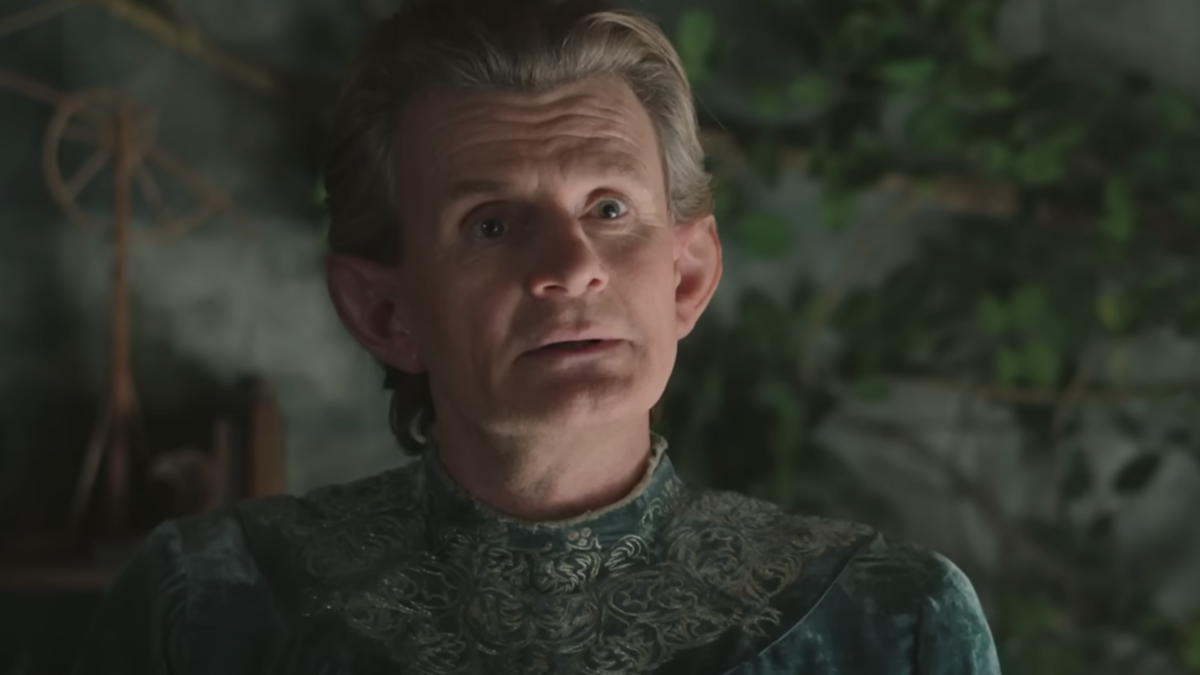It’s not Tolkien’s fault that Amazon’s adaption of his work is terrible. As “The Rings of Power” staggers through the Second Age like a hobbit heading home after a Baggins birthday party, many critics and fans of the show seem to agree that Tolkien’s work, and this part of it in particular, is just too hard to film faithfully and well.
For example, in one roundup, the highest marks for the show came from those who abandoned hope for fidelity to the source material. Kaitlyn Facista of Tea with Tolkien declared that the key to enjoying the show is recognizing that it is “not a direct adaptation of any one of Tolkien’s stories, but a new version of Tolkien’s myth,” while Alexi Sargeant praised it because he was “grading on a curve. We have to consider ‘The Rings of Power’ a fan work.”
This attitude lets Amazon off the hook much too easily; Tolkien’s works can be made into great film and TV. We should not have to settle for fan fiction that gets graded on a generous curve by those with a taste for that sort of thing, or dismissed without hope for something better by those who dislike it. This is why The Federalist’s John Daniel Davidson was right to worry that “no one will ever attempt another large-scale adaptation of Tolkien after Amazon has spent its billion and had its say.” Amazon’s blundering approach to Tolkien may poison the well.
And there was a lot of blundering in the latest episodes. The low point may have been the fourth episode of the show featuring a Numenorean rent-a-rabble worrying that elves would steal their jobs. But Numenor didn’t turn against the elves, and ultimately against the Valar, out of insecurity regarding the basics of life, but out of envy arising from plenitude — the more Numenor had, the more its people, and especially its leaders begrudged the elves their immortality within the world.
But the show has not even tried to grapple with that theme. Instead, it has given us petty teen drama in Numenor — Isildur, flunking out of sailing school; Isildur fighting with his friends; his sister what’s-her-name being attracted to oh-who-the-hell-cares?
As this illustrates, the real obstacle to filming Tolkien well is the filmmakers themselves. The technical barriers are gone. Hollywood budgets and effects departments can make the magic, monsters, battles, and locales of Tolkien’s tales come to life on the screen. And there is plenty of material — an epic film could be made just from the War of the Dwarves and Orcs described in the appendices to “The Lord of the Rings.”
Peter Jackson’s films demonstrated that the difficulty in adapting Tolkien lies in the execution, rather than the technical ability to convincingly film epic fantasy. Jackson’s “Lord of the Rings” series was far better than his “Hobbit” films even though “The Hobbit” is almost certainly an easier story to adapt and film. But the studio initially made a mess of “The Hobbit,” and Jackson failed to clean it up when he was brought in — indeed, by overindulging his desire for spectacle, and Hollywood’s desire for cheap drama, he often made it worse.
Likewise, the weaknesses of Jackson’s “Lord of the Rings” films were largely the result of his determination to take Tolkien’s heroes, from Faramir to Treebeard, down a peg. But doing so did not necessarily make them more relatable. Rather, it often made them less coherent as characters. For example, the Ring is less of a temptation for Jackson’s self-doubting, diffident Aragorn than the Aragorn of the books, who was determined to claim the throne of Gondor and thereby Arwen’s hand in marriage. Aragorn’s greatness was also his peril.
This sort of failure is much worse throughout “The Rings of Power.” Almost no one behaves like an adult, even elves who are hundreds, or even thousands, of years old. The show refuses to trust the viewers to remain interested as grown-up characters are developed and stakes established and increased. Instead, there is a constant stirring of petty drama, which degrades both the characters and the stakes of the conflicts. Thus, even though the show has now put immense (and invented) stakes on the friendship of Durin and Elrond, there is no real drama to be found in it after all their bickering. Cheap drama undermines the real deal.
In contrast, consider how Tolkien developed his characters in setting up the destruction of the Ring. The successive mercies shown to Gollum saved Frodo, and the world, when he finally broke under the burden of the Ring. This story arc was there almost from the beginning and was developed slowly over hundreds of pages. When it was finally fulfilled, it was unpredicted, and yet felt as if it had become inevitable.
That the Amazon showrunners have shown no ability to appreciate, let alone develop, this sort of storyline is not Tolkien’s fault. He left them sufficient material to work with, even if the Second Age lacks the detail of “The Lord of the Rings.” It is not impossible to fill in the gaps in accordance with Tolkien’s spirit and style. They just don’t want to tell that kind of story.
This reticence may be due to doubt that a faithful adaptation of Tolkien would be popular. If Amazon seems to be writing Middle-Earth in the comic book style, it may be because comic book films and shows have made enormous piles of cash, and have therefore set the tone for big-budget action and adventure.
Perhaps they are right. Perhaps audiences want the same adolescent fare in a new wrapper. But the allure of Tolkien’s work has always been rooted in its difference, as well as its quality. “The Lord of the Rings” succeeded because it was a sea breeze amid the dreary swamps of mid-20th-century literature. A filmmaker or showrunner who had the ability and the courage to adapt Tolkien faithfully would likely be rewarded.









